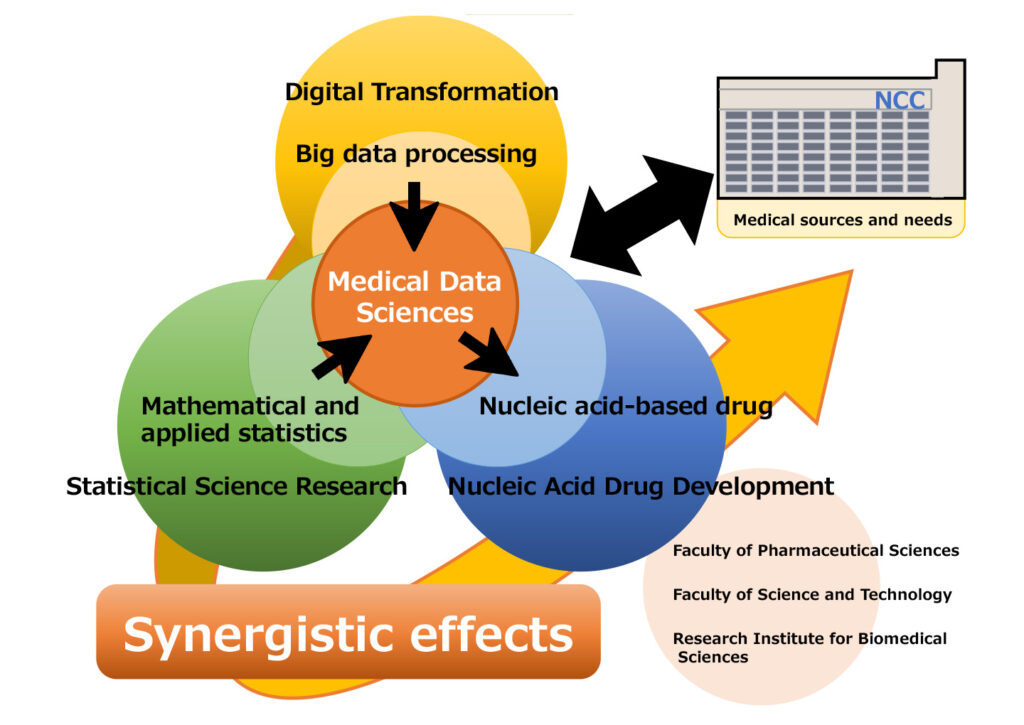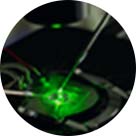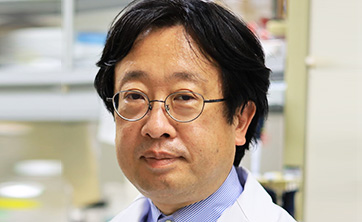Construction of “Medical Data Sciences” establishing novel preventive and therapeutic methods for diseases at TUS
Objectives
The realization of “Medical Data Sciences” is becoming indispensable for establishing preventive and therapeutic methods for the cure of diseases. In medical care, Precision Medicine is being established: patients are stratified into specific groups by analyzing various medical big data, and the appropriate treatment is precisely selected for each patient group. However, at present, there are various problems pose barriers and is a limit to the provision of precise medical care. The purpose of launching this division is combined with data science methods and disease biological methods to solve the medical problems by the collaboration with NCC-EPOC, the Jikei University School of Medicine, and TUS. The outcomes are expected to prevent disease progression, extend healthy life expectancy, and realize high QOL and rehabilitation of patients.
This division will promote new patient stratification and proposals for treatment methods by using data science research on medical big data as a starting point. There are various challenges to be overcome in the realization of “Medical Data Sciences”. Therefore, we will make full use of data science methods accumulated in TUS to solve the problem and develop the theoretical foundation for proposing new therapeutic agents and treatments. A series of research will enable the creation of new academic fields and the establishment for the theoretical foundation of “Medical Data Sciences”. Furthermore, we will promote next-generation education and the development of researchers who will adapt and develop “Medical Data Sciences” based on medical big data.
Current Situation of “Medical Data Sciences”
Attempts to solve medical problems with data science methods have become a global trend. Such efforts are also being actively carried out in Japan. This division uses NCC, the Jikei University School of Medicine and global medical databases as medical sources and needs, but is characterized by using the data science methods accumulated at TUS. This is made possible by gathering specialists highly specialized data science and disease biology of TUS. Although the network scale of researchers is smaller than the
global networks by other groups, it secures the diversity of researchers’ specialties and enables them to cooperate closely and flexibly carry out research activities.










